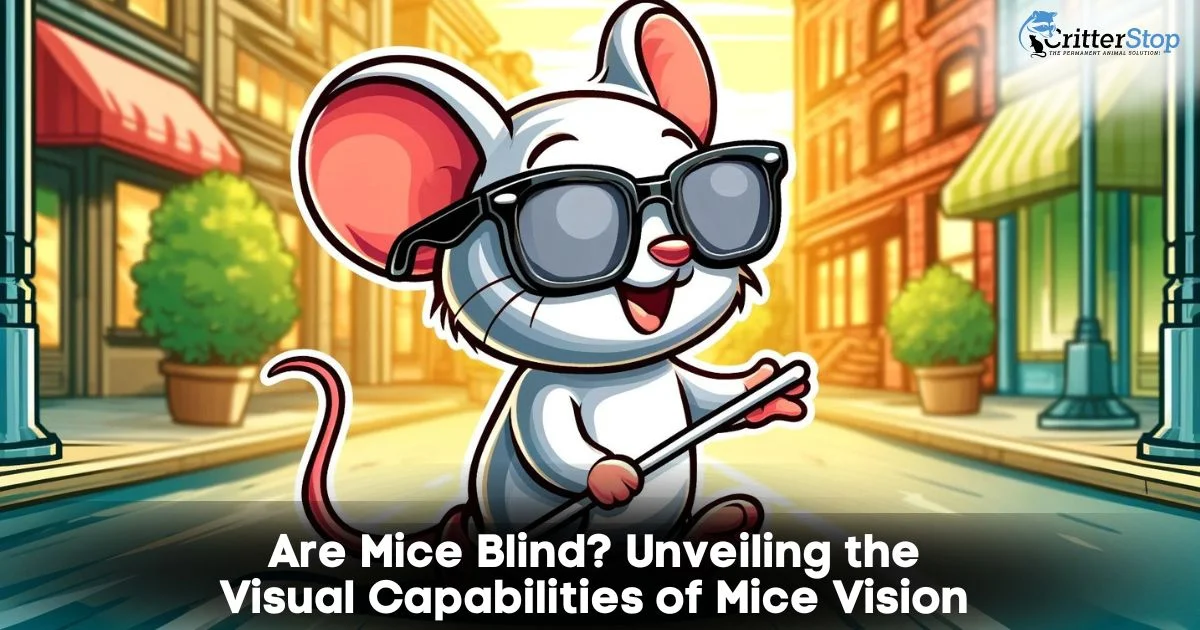
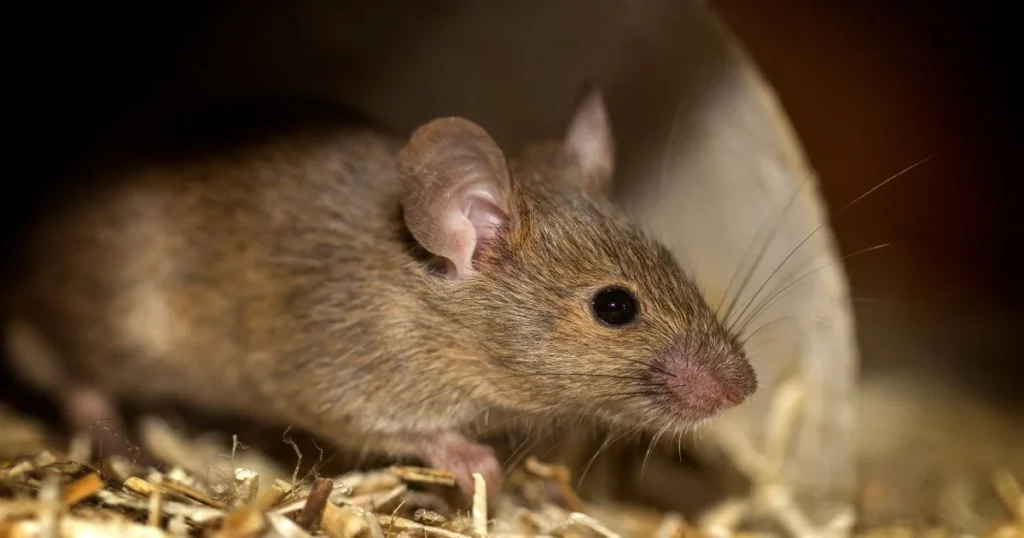
Contrary to popular belief, mice are not completely blind but they do have limited vision. Mice are essentially low-vision creatures, which means that their visual acuity is not as developed as that of humans or many other animals. Their eyesight is adapted primarily for survival, equipped to detect quick movements and navigate in the dark, rather than for depth and detail. This adaptation supports their nocturnal lifestyle, allowing them to thrive in environments where light is minimal and survival depends on the ability to avoid predators.
In addition to their basic capacity to detect movement and general shapes, the vision of mice is largely monochromatic. So, are mice blind? No. Mice possess a visual system that is skewed heavily towards the detection of light and dark rather than the spectrum of colors. This is due to the predominance of rods over cones in their retinas; rods are more sensitive to low light and are crucial for night vision but do not detect color. The small number of cones, which are responsible for color vision, do not provide the clarity and color detail that they do in the human eye. Thus, while mice can navigate their surroundings effectively, their world is viewed through a lens that captures primarily shades of gray, enhancing their ability to see in low light at the expense of a colorful perspective.
Furthermore, the evolutionary development of mouse vision emphasizes their specialized needs. The structure of their eyes facilitates a wide field of view, although with less focus on details. This wide field allows them to detect motion from a broad range, an essential skill for spotting predators and other dangers quickly. However, this comes with a trade-off in terms of visual precision, which is less critical for their survival compared to the ability to react swiftly to threats in their peripheral vision. This unique combination of visual traits ensures that mice can navigate and survive in their niche, despite the limitations of their sight.
Mice possess a vision that is highly adapted to their nocturnal lifestyle. Their eyes are sensitive to light and motion, which are crucial for detecting predators and moving through their environment during the night. The anatomical structure of a mouse's eye contributes to its specific visual capabilities and limitations. Knowing this, are mice really blind? For instance, mice have a larger proportion of rod cells compared to cone cells. Rod cells are highly sensitive to light and excel in low-light conditions but do not contribute to color vision, but not, they are not blind. This cellular composition explains why mice are not adept at distinguishing colors; they primarily see shades of gray.
To further elaborate, the retina of a mouse is uniquely structured to maximize its sensitivity to light rather than color detail. The high number of rod cells in their retinas allows mice to detect very low levels of light, giving them an advantage in their dark, nocturnal habitats. This sensitivity is crucial for their survival as it helps them avoid predators that might be lurking in the darkness. Additionally, the presence of certain pigments in rod cells enhances their ability to capture light effectively, even in minimal lighting conditions.
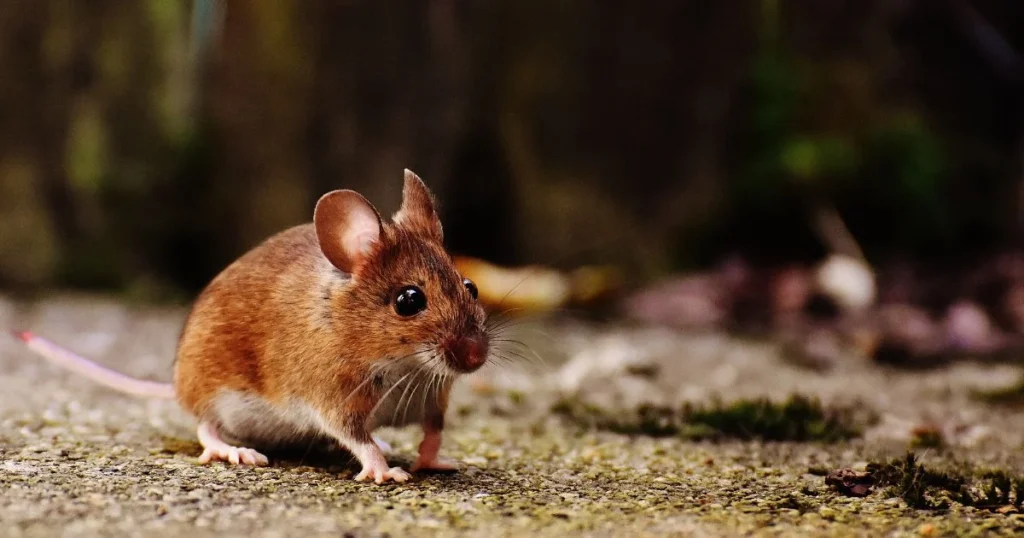
This relative blurriness in a mouse's vision is not a hindrance but rather an evolutionary adaptation that supports their survival tactics. The ability to detect rapid movements rather than focusing on detailed images allows mice to quickly respond to threats or opportunities in their immediate environment. Their eyes are primed to notice the slightest motion, which is crucial when predators may be nearby or when navigating through complex terrains under the cover of darkness.
Moreover, the mouse's visual system is optimized for their life conditions, emphasizing speed over clarity. This optimization includes neurological adaptations that process visual information swiftly, ensuring that mice can react instantaneously to changes in their surroundings.
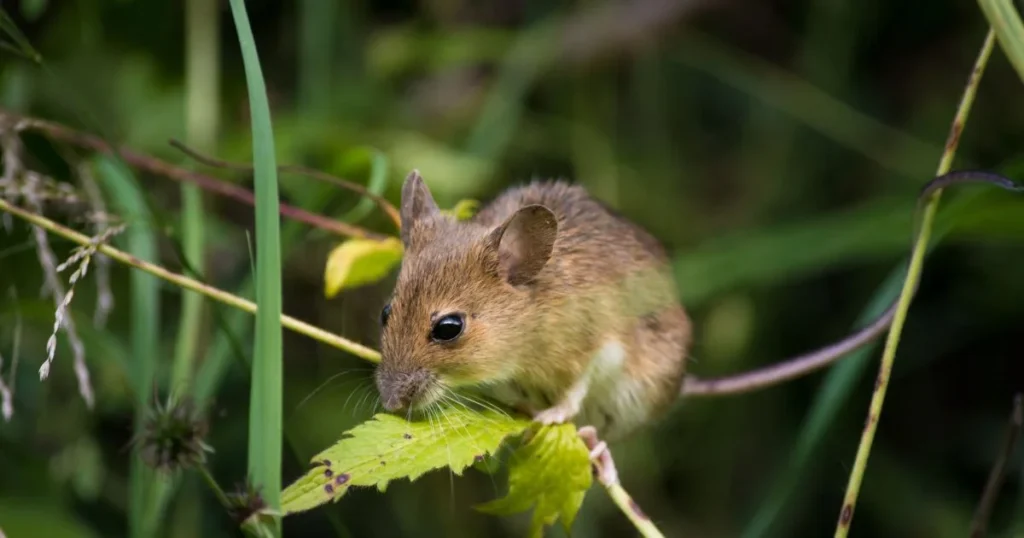
Mice rely heavily on other senses to compensate for their poor eyesight. Their whiskers play a vital role in sensing their surroundings, helping them to detect textures and navigate through tight spaces in the dark. Additionally, their keen sense of smell and hearing are critical for communicating with other mice, finding food, and avoiding predators. These sensory adaptations are essential for survival, given their visual limitations.
Whiskers, or vibrissae, are not just ordinary hair but are highly sensitive tactile organs that are deeply embedded in the mouse’s skin and connected to the nervous system. They provide crucial sensory feedback, enabling mice to sense changes in their immediate environment and navigate effectively without relying heavily on vision. This whisker-based navigation is especially useful in complete darkness, where visual cues are absent. Mice can detect obstacles and surfaces, gauge the width of openings, and even sense changes in airflow around them through their whiskers.
In addition to tactile feedback, the olfactory and auditory senses of mice are exceptionally acute. Their sense of smell allows them to detect food sources from afar, identify territories, and recognize the scent of other mice for social interactions
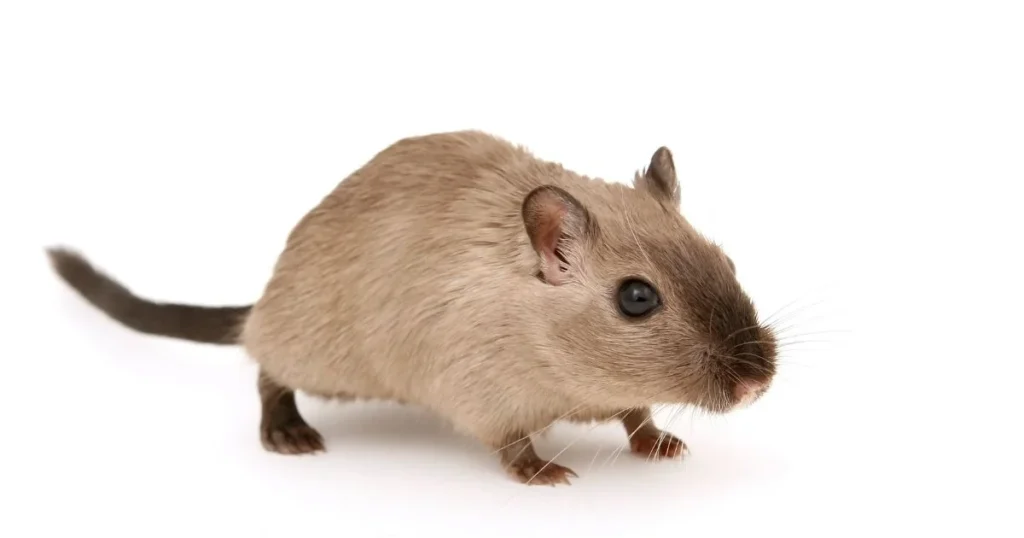
Understanding the visual capabilities of mice has practical implications, especially in the fields of pest control. For homeowners dealing with mouse infestations, recognizing that these creatures are more active at night and rely heavily on their other senses can inform more effective strategies for control. If you're encountering issues with mice, contacting a professional humane wildlife removal service in Dallas can be your best approach. Critter Stop specializes in mice removal services, focusing on humane and effective solutions. Their high-quality work and excellent customer service are well-documented through fantastic customer reviews online, making them a trusted choice in wildlife management.
The knowledge that mice are primarily nocturnal and rely more on senses other than vision can guide homeowners in implementing more strategic pest control measures. For example, since mice have a heightened sense of smell, using scent-based deterrents can be an effective way to keep them at bay. Additionally, understanding that mice use their whiskers to navigate and detect changes in their environments suggests that sealing even small gaps and entry points can significantly reduce the likelihood of mice finding their way into a home.
Moreover, professional services like Critile Stop are equipped with the expertise and tools to assess a mouse problem comprehensively and implement solutions that not only remove the existing mice safely but also prevent future infestations. Their methods are grounded in a deep understanding of mouse behavior, which ensures that their removal strategies are not only effective but also humane, avoiding unnecessary harm to the animals. This approach not only addresses the immediate issue but also contributes to a longer-term solution that is environmentally responsible.
So, are mice blind? No, they are not blind, their vision is significantly different from that of humans. It is adapted to their nocturnal lifestyle, allowing them to detect motion and navigate in the dark, despite being unable to see clear details or vibrant colors. For homeowners experiencing mouse issues, the expertise of Critter Stop in humane and effective mice removal services can provide an ideal solution. Our commitment to quality service and customer satisfaction ensures that your home can be mouse-free in a humane and efficient manner. Contact us at (214) 234-2616 to schedule an appointment and reclaim a rodent-free home!
Visit our Critter Library and learn more about our furry friends